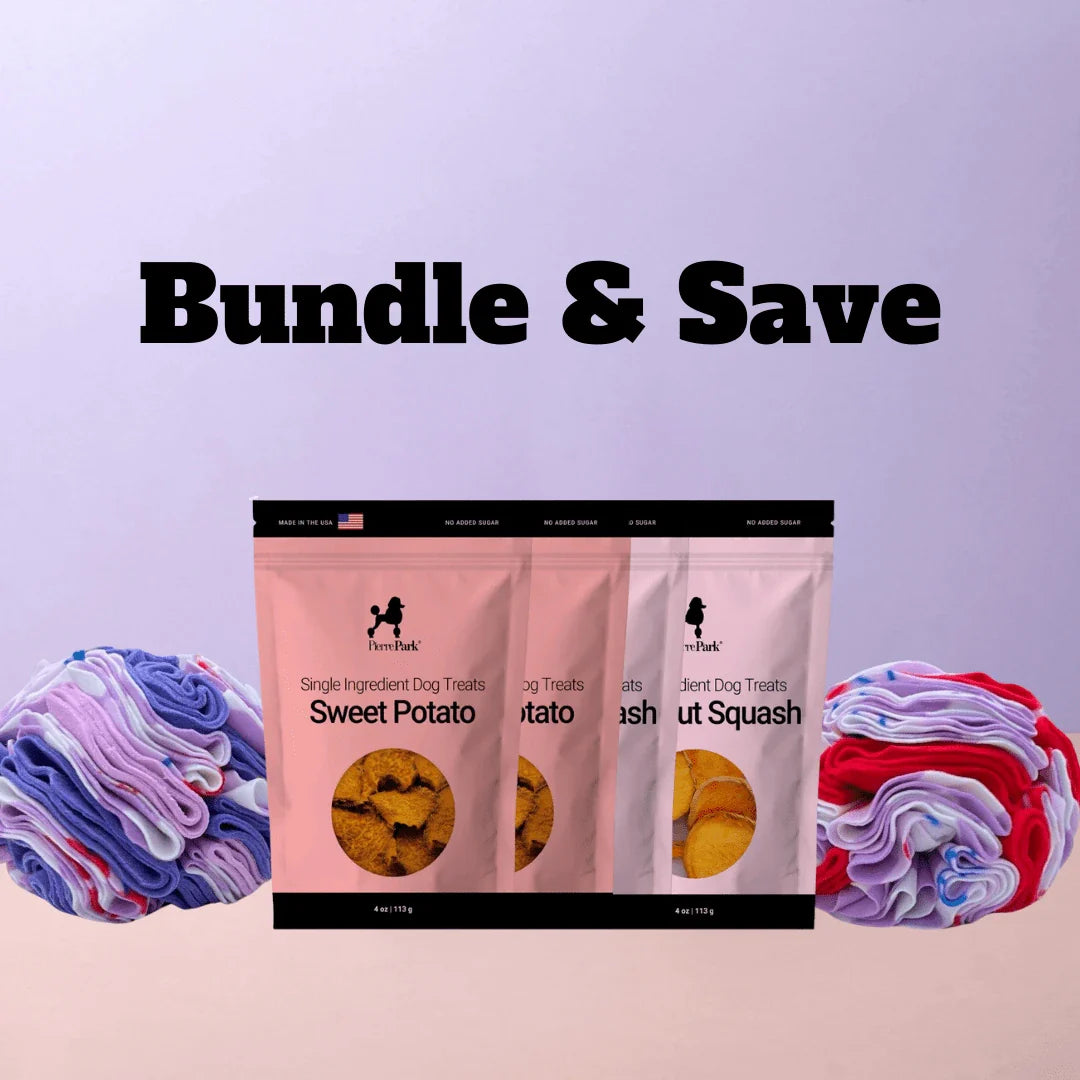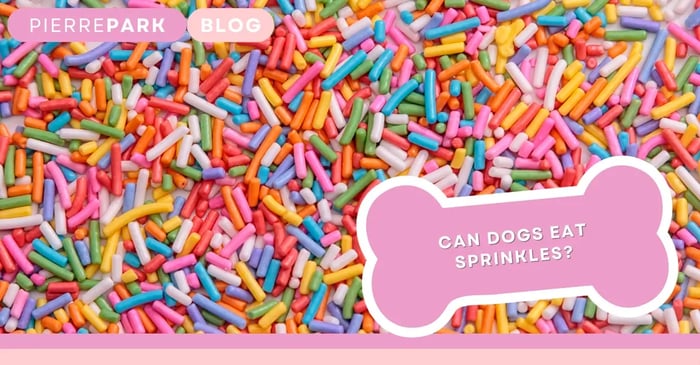Table of Contents
Vet-Approved

This article has been rigorously reviewed and validated by Dr. Annina Müller, med. vet., an accomplished veterinarian who earned her veterinary degree at the University of Bern, specializing in Small Animal Surgery. Her expertise ensures that the advice provided is both current and accurate in the field of veterinary medicine.
As pet owners, we often want to share our treats with our furry friends. However, it's crucial to understand that not all human foods are safe for dogs. While chocolate is well-known to be toxic to dogs, what about sprinkles?
What Are Sprinkles?
Sprinkles are small, colorful decorations used on desserts. They typically contain sugar, cornstarch, corn syrup, artificial food coloring, flavorings, oils, and waxes. These ingredients make them appealing to humans but potentially problematic for our canine companions.
Are Sprinkles Safe for Dogs?
While sprinkles are not inherently toxic to dogs, they are not recommended as a treat. Here's why:
1. High Sugar Content: Excessive sugar can lead to obesity, dental problems, and potentially contribute to diabetes in dogs.
2. Artificial Food Coloring: Some studies suggest that artificial food dyes may cause behavioral issues in animals, similar to effects observed in children.
3. Additives and Preservatives: These can potentially cause digestive upset in some dogs.
4. Xylitol Risk: Some sugar-free sprinkles may contain xylitol, an artificial sweetener that is highly toxic to dogs and can cause rapid blood sugar drops and liver failure.
5. Choking Hazard: Larger sprinkles, like pearls, could potentially pose a choking risk, especially for smaller dogs.
What If Your Dog Consumes Sprinkles?
If your dog eats a small amount of regular sprinkles, they're unlikely to experience serious side effects. However, monitor your pet for signs of digestive upset. If you notice lethargy, vomiting, or diarrhea, consult your veterinarian.
If you suspect your dog has consumed sprinkles containing xylitol, this is an emergency situation requiring immediate veterinary attention.
Healthier Alternatives for Dogs
Instead of sprinkles, consider these dog-friendly options:
Coconut flakes (unsweetened): Rich in healthy fats and fiber. Coconut can be beneficial for dogs in moderation, supporting skin and coat health.
Pumpkin: Rich in fiber and nutrients, plain canned pumpkin (not pie filling) can aid digestion and is often recommended by veterinarians. It's also low in calories and high in vitamin A.
Small pieces of dog-safe fruits and vegetables: Provide vitamins and minerals. Safe options include apples (without seeds), blueberries, carrots, and green beans.
Plain, low-fat yogurt: A good source of protein and probiotics, beneficial for digestive health. Ensure it doesn't contain xylitol or added sugars. The calcium in yogurt can also support bone health.
Always introduce new foods gradually and in moderation. These alternatives should be given as occasional treats and not replace a balanced diet. Consult with your veterinarian before making significant changes to your dog's diet, especially if your pet has any health conditions or dietary restrictions.
A Healthier Alternative: PierrePark's Sweet Potato Dog Treats
For pet owners seeking a nutritious and safe alternative to human treats, PierrePark's Sweet Potato Dog Treats offers a veterinarian-approved option. Sweet potatoes are an excellent source of dietary fiber, vitamins, and minerals that can benefit your dog's health when given in moderation.
Key benefits of PierrePark's Sweet Potato Dog Treats:
- All-natural ingredients: Made from high-quality sweet potatoes without artificial additives, preservatives, or fillers.
- Nutritional value: Sweet potatoes are rich in beta-carotene, vitamin C, and vitamin B6, supporting immune function and overall health.
- Digestive health: The natural fiber in sweet potatoes can aid in maintaining healthy digestion.
- Versatility: Can be given as a standalone treat or incorporated into homemade dog food recipes.
As with any treat, it's important to introduce PierrePark's Sweet Potato Dog Treats gradually and in appropriate portions based on your dog's size and dietary needs. While these treats are a healthier option, they should still only comprise a small part of your dog's overall diet – no more than 10% of daily caloric intake.
Always consult with your veterinarian before making significant changes to your dog's diet or introducing new treats, especially if your pet has any existing health conditions or dietary restrictions.
How to Prevent Pets from Consuming Harmful Sweets
1. Store sweets securely out of your dog's reach.
2. Clean up any fallen crumbs or sprinkles immediately.
3. Ensure trash bins are secure and inaccessible to pets.
4. Opt for specially formulated dog treats instead of human desserts.
Final Thoughts
While a few sprinkles are unlikely to cause serious harm, they offer no nutritional benefit to dogs and could potentially cause issues if consumed in large quantities. As responsible pet owners, it's best to stick to treats specifically designed for dogs to ensure their health and safety.
There's no shortage of natural, healthy treats for pets, such as PierrePark's Sweet Potato Dog Treats. Rather than feeding your pets table food with unknown ingredients, opt for specially formulated dog treats or natural alternatives. If you're ever unsure about a food item, always consult with your veterinarian before offering it to your pet. Your dog's health and well-being should always be the top priority when considering treats and snacks.






